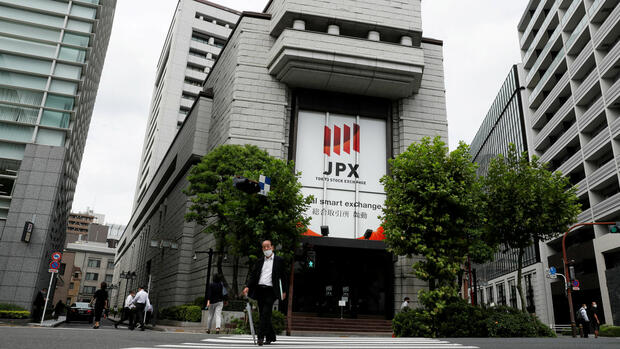Singapore A strong reporting season and hopes of an early settlement in the US debt dispute catapulted the Nikkei index to its highest level in 33 years on Friday. The Japanese stock market climbed 1.1 percent to 30,924.57 points. The broader Topix was also at 2171 points, the highest it had been since 1990.
Since the beginning of the year, both indices have increased by around 17 and 14 percent, respectively. “Investors will now be concerned whether the rally in the Japanese stock market will continue,” said Kazuo Kamitami of Nomura Securities. Concerns about the stock market overheating are likely to be making the rounds.
From the point of view of Masayuki Kichikawa from Sumitomo Mitsui DS Asset Management, the stock market in Japan still has room for improvement. As long as the US economy cools down only slightly, Japanese stocks should not be overvalued, the expert believes.
In the dispute over the US debt ceiling, President Joe Biden and leading Congressman Kevin McCarthy recently reaffirmed their determination to reach a speedy agreement to raise the debt ceiling and prevent a default. If no agreement is reached, the government could no longer pay its bills by early June – a scenario with devastating effects on the global financial system.
Japan’s core consumer inflation remained well above the Bank of Japan’s (BOJ) 2 percent target in April. The nationwide core consumer price index (CPI), which excludes volatile fresh food prices but includes fuel costs, rose 3.4 percent in April from a year earlier, government-collected data showed on Friday. The value thus corresponded to a medium market forecast and rose further compared to March (plus 3.1 percent).
Analysts currently believe the surge in April, the start of Japan’s new fiscal year, when many companies adjust retail prices, suggests mounting price pressures are keeping inflation above the BOJ’s 2% target for longer than expected could.
The Chinese stock exchange could not keep up with the price gains in Japan at the end of the week. The Shanghai stock exchange lost 0.3 percent. The index of the most important companies in Shanghai and Shenzhen also fell 0.3 percent. Among stocks, Chinese retail giant Alibaba was a disappointment, with less-than-expected sales for the quarter. The shares lost more than four percent.
More: agreement or not? The US debt dispute is entering the decisive phase
